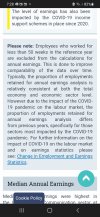The National Minimum Wage is to increase to €12.70per hour from the 1st of January.
While this looks like a measure to tackle poverty it isn't. Most people who earn the minimum wage live in middle to high income households and social transfers are a much better way of dealing with poverty.
What it will do is cause more wage inflation across the economy, particularly in the services sector which employs a large cohort of the low skilled, low value adding, low paid part of the workforce. This in turn will cause inflation in that sector and make middle income people feel poorer.
In some sectors it will make low skilled people unemployable because their economic value is less than €12.70 an hour.
Edited to correct the by error saying that the new hourly rate was €11.30.
While this looks like a measure to tackle poverty it isn't. Most people who earn the minimum wage live in middle to high income households and social transfers are a much better way of dealing with poverty.
What it will do is cause more wage inflation across the economy, particularly in the services sector which employs a large cohort of the low skilled, low value adding, low paid part of the workforce. This in turn will cause inflation in that sector and make middle income people feel poorer.
In some sectors it will make low skilled people unemployable because their economic value is less than €12.70 an hour.
Edited to correct the by error saying that the new hourly rate was €11.30.
Last edited:

:quality(70)/cloudfront-eu-central-1.images.arcpublishing.com/irishtimes/7NVDCQGUGTEMIAWAUDVVVQASEQ.jpg)